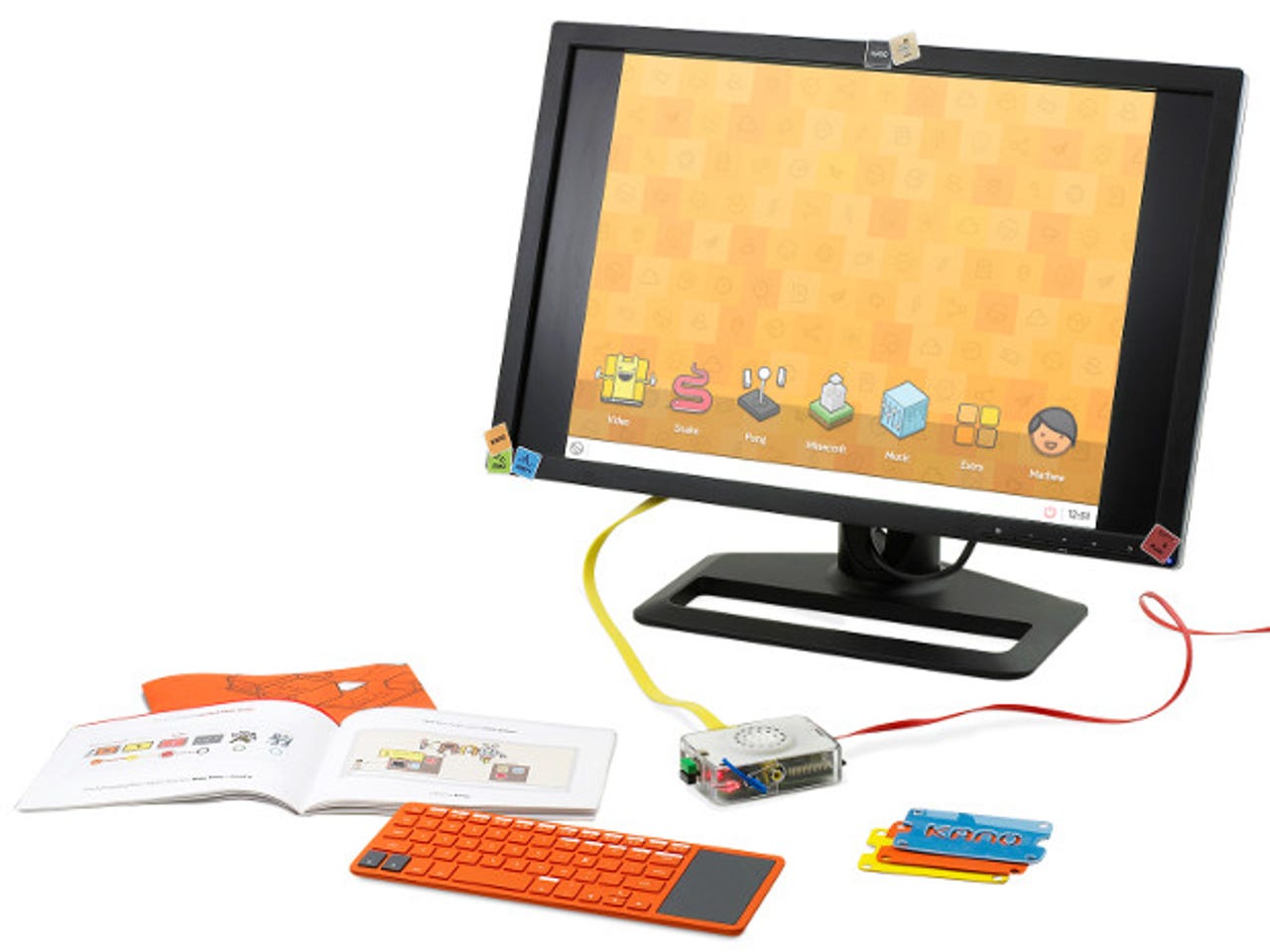Inspired by Lego, fuelled by creativity: Linux-based Kano kit wants to get kids hacking again


Today's PCs aren't hugely friendly towards hardware hackers and tinkerers.
Both OS X and Windows 8 are fairly closed operating systems, merely allowing coders to run commands and pulling a veil over the internals of the software powering the machine. The same goes for hardware: all-in-ones, laptops, and tablets alike aren't easy for curious types to take apart and see what's inside.
It's a situation that's creating a generation of individuals that merely use their PCs, instead of using them to create.
A small British company with an Israeli founder, Yonatan Raz-Fridman, and strong Israeli ties, is trying to change that. Kano is offering a 'do it yourself' computer kit based on the popular Raspberry Pi $35 Linux PC, and designed to encourage users of all ages to explore and create with technology.
"In the past, it was customary for you to handle the command line yourself. But for people who create software and hardware [today], it's easier if users don't mess with it. So much of this knowledge nowadays is locked away in labs in London or Silicon Valley. But if you trust the user a little bit, they can do more," said Alex Klein, one of Kano's founders.
The original idea for Kano came from Klein's seven-year-old cousin, who wanted to build a computer — and wondered if it could be simple as playing with Lego blocks.
"Most of us don't know how a computer works," Klein said. "So we thought, 'Let's make a computer for children, make it colourful and base the experience on movies and images'."
The Kano package includes the Raspberry Pi Model B, a custom case with several colourful covers, a wireless keyboard with trackpad, HDMI and MicroUSB cables for display and power, a USB wi-fi dongle, power sockets, and a 8GB SD card carrying Kano OS.
The Kano kit is priced at $129, and aimed at the education sector where it can be used to assist children in developing their computer skills and creativity.
"It's an excellent way to learn how to code, but we wanted to create a new computing experience. It's playful and speaks the language of games and mobile, and it gives kids of all ages a way to express themselves without reading things online or from a thick book," Klein said.
Aside from its extremely cute hardware, Kano is hoping to make the original Raspberry Pi computing experience more accessible for children.
Much like OLPC's Sugar environment, Kano OS is colourful and funny, and allows children to "get comfortable" with the computer that they've just assembled.
"We are trying to create a layer above the Pi, and make it go mainstream," Klein said, where young users "don't have to fiddle with stuff — we want them to do stuff".
Klein also gives an example straight out of the Kano OS environment: a programming language, similar to the age-old Logo. Called Kano Blocks, the language essentially lets kids draw with code.
"Most of the known programming languages are represented in our device," he said. "The programming language we developed, Kano Blocks, allows you to drag and drop blocks into the code window, and that creates Python or JavaScript code. Even if you've never coded before, suddenly you can create things in Minecraft.
"The best way to make people get into it is through drawings and images... With our OS, they break the rules, share their creations with friends. We say — don't start from scratch, start with these things that we offer, and make them yours. That's the essence of hacking."
Following a successful crowdfunding campaign which saw Kano surpass its original $100,000 goal by well over $1m, Kano will start shipping the more than 13,000 pre-ordered kits next month.
"Our focus is on creation and invention, and to steer a little chaos — instead of clicking on Facebook, scroll, scroll, scroll, click on YouTube, scroll, scroll, scroll… If we make children create technology and not just use it, we will also be able to revive our economies," he said.